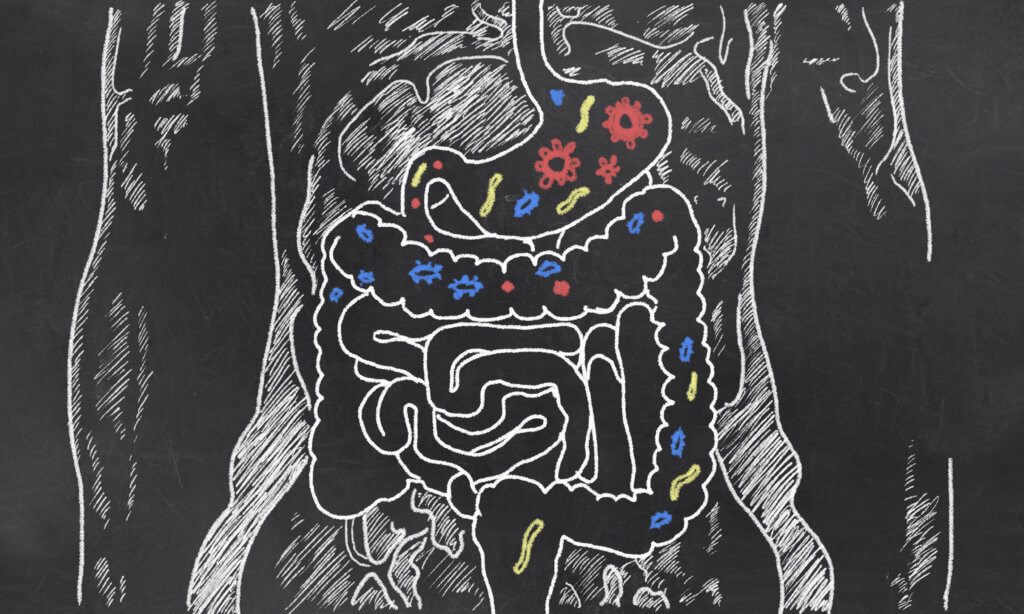Feeling blue? Your immune system could be to blame. New research reveals that an enzyme produced during inflammation travels from the blood to the brain, throwing neural switches that control mood and behavior.
Like molecular locks picking neurons, these enzymes trigger classic hallmarks of depression in animal tests when stress signals the body’s defense forces. By identifying the precise biological culprit responsible, scientists now have a potential target to develop more advanced antidepressant treatments.
The discovery of a defined biological pathway directly linking inflammation and stress to altered brain function adds to an unfolding scientific story. Findings demonstrate how communications between the body, brain, and environment intersect – for better or worse.
The study was led by Dr. Flurin Cathomas, a psychiatrist at the University Hospital of Psychiatry Zurich. “We were able to show that stress increases levels of an enzyme called matrix metalloproteinase-8 (MMP-8) in the blood of mice. The same changes were found in patients with depression,” explained Cathomas in a statement.
Once released into the bloodstream, MMP-8 makes its way to the brain where it restructures the scaffolding surrounding brain cells, leading to changes in neuronal signaling. The mice withdrew socially and displayed hallmarks of resigned, depressed behavior. Eliminating MMP-8 prevented the effects.
“They indicate a new ‘body-mind mechanism’, which might be relevant not only for stress-related mental illness, but also for other diseases that affect both the immune and nervous systems,” said Cathomas. The specific enzyme provides a fresh target for developing innovative antidepressant therapies.
The Spark: Stress and the Immune System
The discovery adds to growing evidence on how stress and underlying inflammation are connected to depression. When the body perceives stress, whether social, emotional, or physiological, a cascade of molecular signals readies the immune system for potential threats. Cells of the immune system called monocytes and their products can then penetrate the fortress barrier protecting the brain from blood-borne factors.
“Our work demonstrates the importance of the interaction between the immune system and the brain in the development of psychiatric disorders,” explained Cathomas. “These insights are already being incorporated into psychiatric treatment today.”
Finding the Culprit Signal
Using animal models, the scientists found that stress signals monocytes to migrate into the brain, specifically areas like the reward center linked to motivation and pleasure. Once there, monocytes pump out MMP-8.
MMP-8 is tasked with remodeling the net-like extracellular matrix encapsulating brain cells. “If MMP-8 penetrates the brain tissue from the blood, it changes the matrix structure and thus disrupts the functioning of the neurons. Mice who are affected by this process display changes in behavior that are similar to those seen in humans with depression,” described Cathomas.
The researchers proved the causal role of MMP-8 by removing its gene in mice. Without the enzyme signal, stressed mice behaved normally and did not exhibit the withdrawn, asocial tendencies typical of depression even when other factors remained stressed. Tests of blood samples from clinical patients with depression similarly showed they carried higher counts of both immune monocytes and MMP-8 compared to healthy individuals.
Hope for New Treatments
Researchers believe that identification of the specific MMP-8 protein could be a primary step in developing new treatments for depression.
The study establishes a defined physiological pathway translating stress-induced inflammation into depressive brain changes. Since the cascade travels through the blood, blocking MMP-8 signalling could have profound effects without entering the brain itself.
That said, there is plenty of work in the lab to be done before the results can be tested in a clinical setting, cautioned Cathomas. Still, the discoveries highlight promising possibilities of modulating the immune system to influence behavioral health.
The research team has already integrated similar concepts at the hospital’s specialized Integrative Care ward. Patients receive holistic psychiatric treatment addressing mind, body, and behavior as interlinked components rather than isolated categories. Cathomas foresees great potential in expanding integrative care approaches as emerging research continues documenting specific pathways bridging our perceptions, physiology, and mental well-being.
The study is published in the journal Nature.












